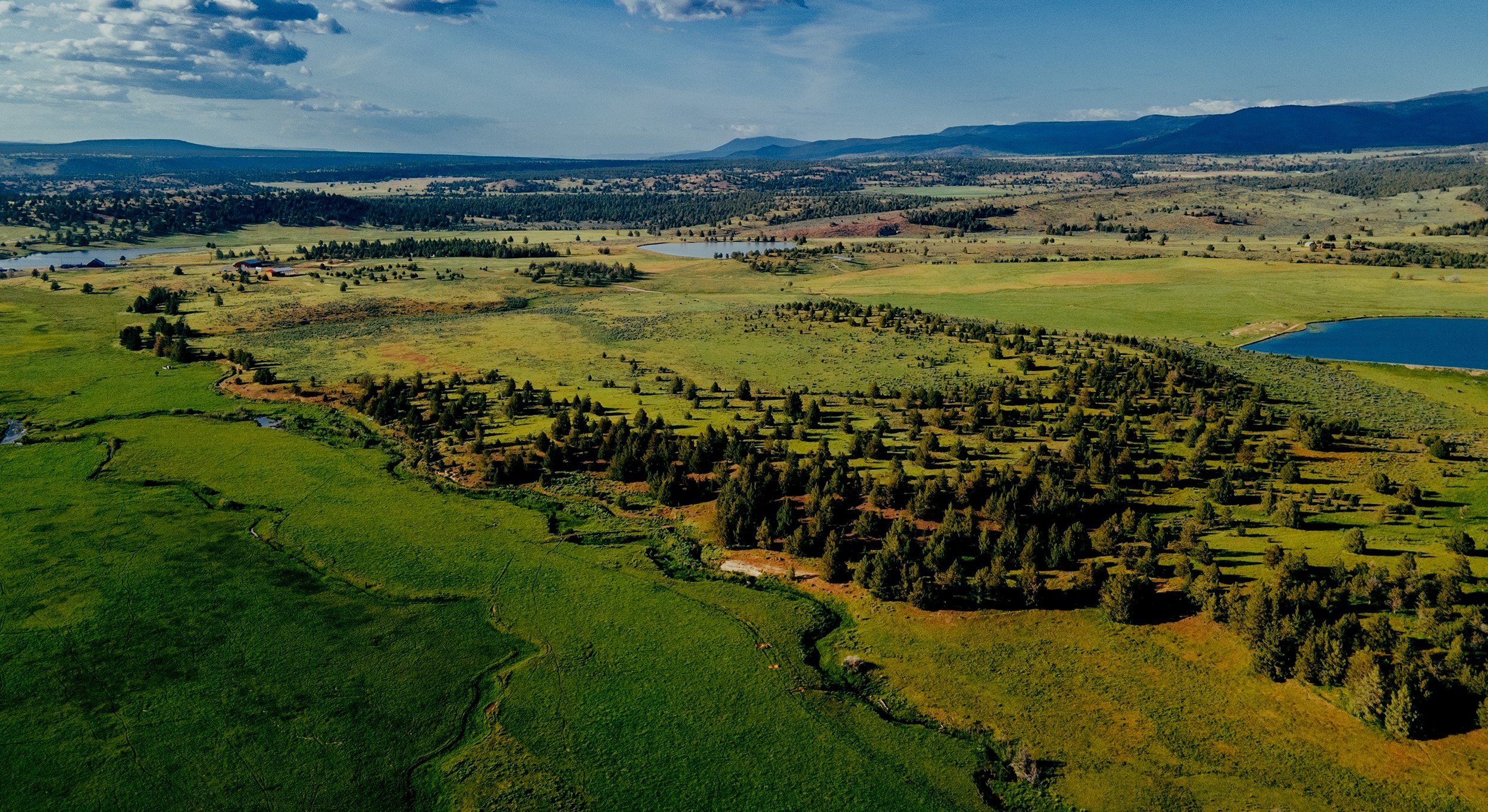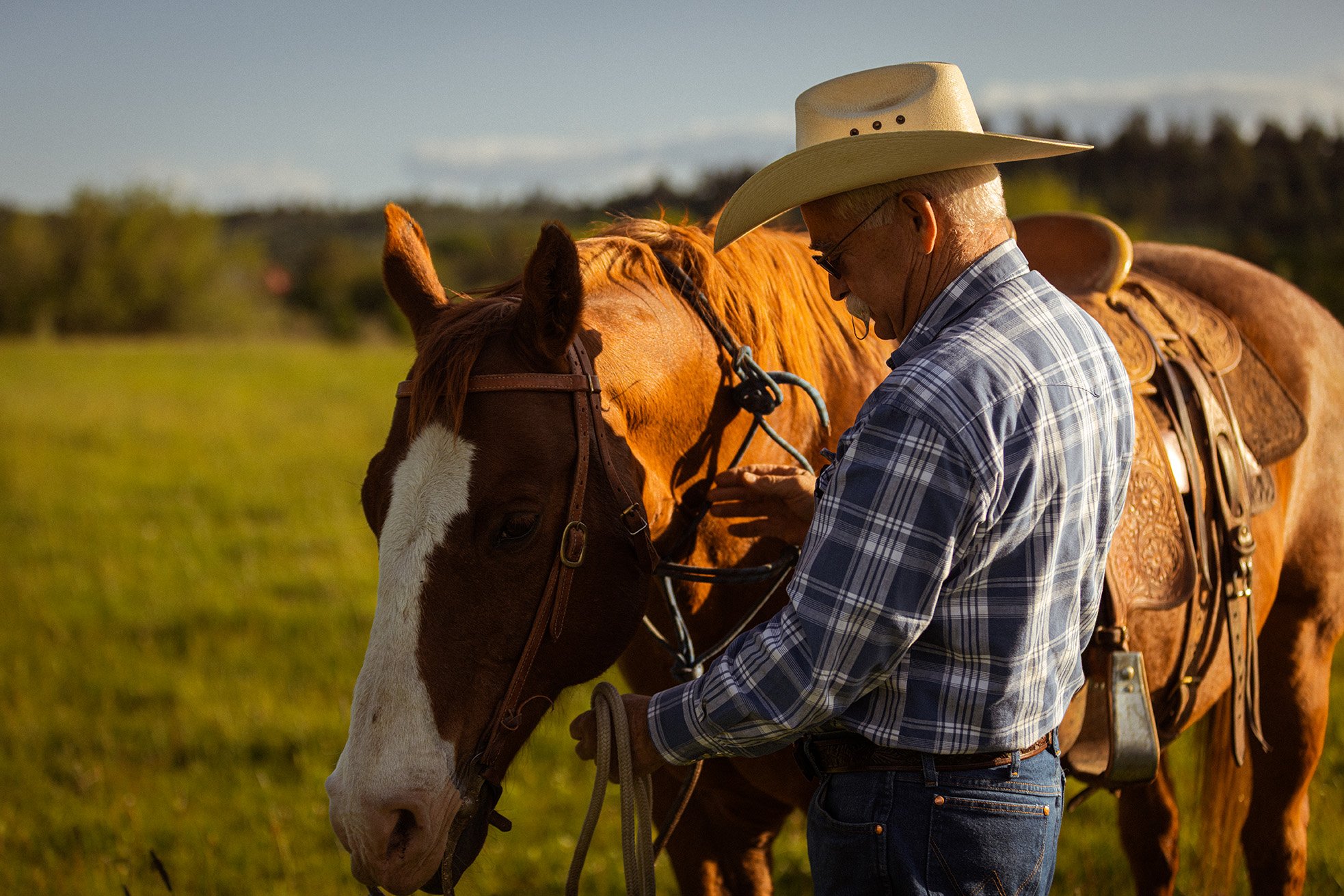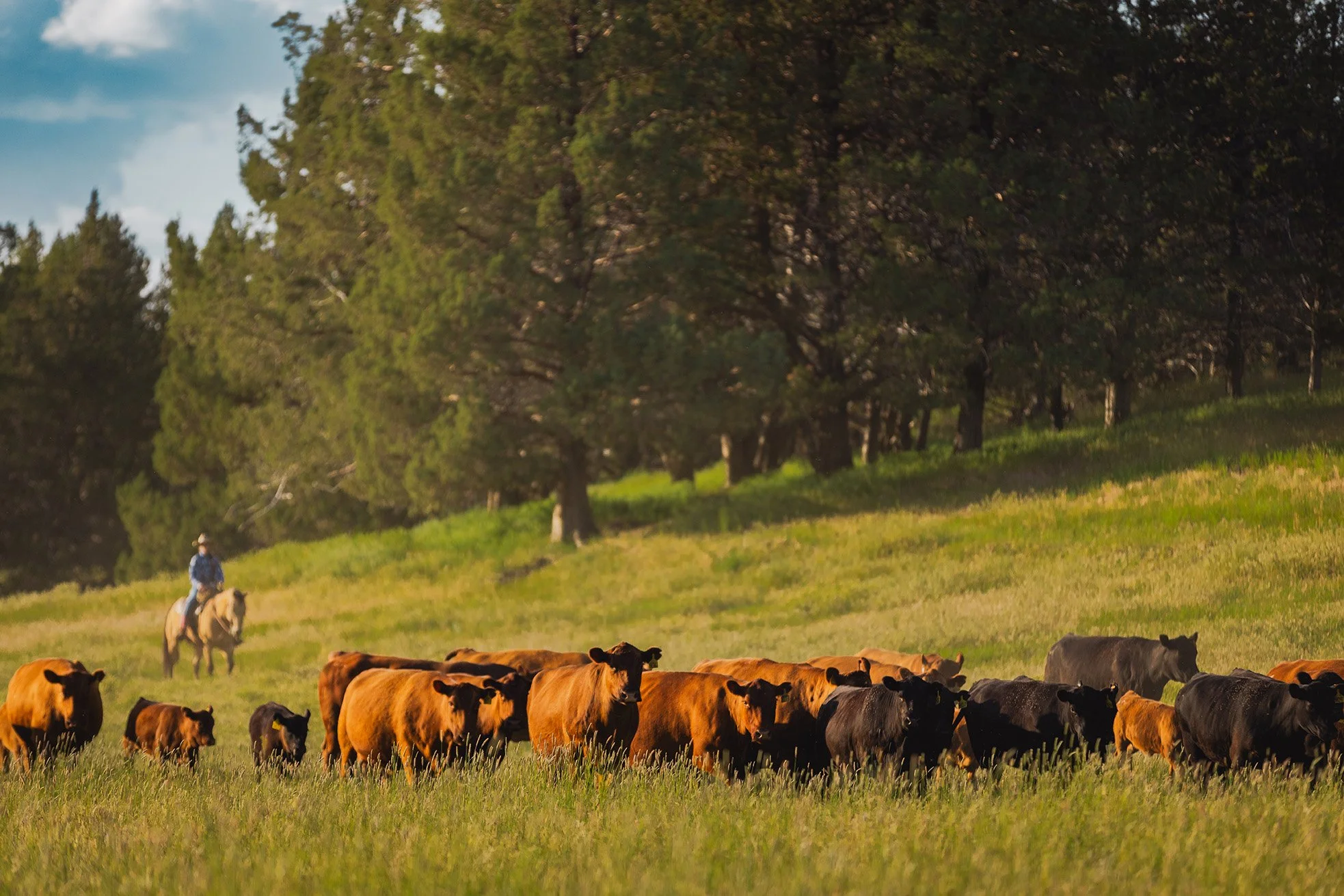
Invest in Modoc County’s USDA Meat Processing Facility
Backed by Feasibility. Powered by Demand. Designed for ROI.
See why Modoc’s Meat Processing Facility is a Game-Changer
Rooted in the Past. Built for the Future.
Modoc Meat is more than a facility. It’s a turning point for ranchers, entrepreneurs, and rural communities across the West. It’s an investment in local food systems, economic strength, and the enduring spirit of Modoc County—where the West still lives.
-
Ned Coe, Modoc County Rancher and Board of Supervisors Chair: Our inputs here are sunshine, water and soil, and we grow grass—we grow really good, strong grass, and cattle do really well. There's a good, strong supply of cattle in the area.
Shane Starr, Modoc County Supervisor: Modoc County is kind of like a modern day Mayberry. It's a wonderful community. It's small enough that everyone knows everyone, but everyone stays out of each other's business.
0:39
Jennifer Engel, Mayor Pro-tem, City of Alturas: I like that the community, we all help each other. Everybody tries to make things better. We all kind of try to do our part in helping our neighbors. And it's nice because, you know, everybody.
0:52
Shane Starr: We’re looking at roughly 60,000 annual head cow calves throughout our different ranches that we have here. These are ranches that are some of the oldest in the country.
1:01
Ned Coe: For the past 30 years, Valerie and I have been here in Alturas in Modoc County, no matter how hard the week has been, we come out here in the summertime to move irrigation water and spend check cows, and it is just so peaceful and relaxing.
1:19
Cassie Oyarzun, Vice President, Ag Loan Officer, Plumas Bank: We have a lot of people in the area that already are producing farm to table. I can name one sheep producer that markets farm to table. I can name two different groups that do pork, one of them also does chicken. And there's three or four different producers that do beef.
Jennifer Engel: And there's some really innovative people. We have two different food hubs available here at a farmers market that try to provide local produce and local meats to people. And then those have their own outreach. So they're trying to start farming in the school. So they do farm to table, and the school works with that too to feed the students.
1:57
Shane Starr: One of our biggest issues we have talking with many of our ranchers is the wait time just to get into a processing facility, as well as the time of travel and expense for the logistics to get their livestock to a meat processing facility is astronomical.
Ned Coe: The cattle we raise here is a cow calf operation. We raise Angus calves. Sell them at about eight to nine months of age at this point.
2:27
Cassie Oyarzun: Right now, it's a struggle, because producers either have to go to Fallon, Nevada, or some of them are going as far as the Five Mary's plant to get their meat processed,
2:38
Ned Coe: But with the option of being able to process our own calves, we would continue to keep them until they're about a year and a half old, and at that point, probably 1200 to 1300 pounds, instead of selling them at 650, 700 pounds.
2:57
Shane Starr: And we think if we have an opportunity to build a facility here in Modoc County. Once that we show that there is an interest with investors and a private corporation to come in and start getting something developed, you're going to see people coming out of the woodwork to come out support and start getting in line, to do their processing here at the county.
3:15
Jennifer Engel: My hope is that if we had a meat processing facility here, it would lower the end cost for people who are buying local meat.
3:25
Shane Starr: We have great interest in making sure that the businesses we have are staying vibrant, staying financially feasible.
Jim Cavasso, Alturas Business Owner, Niles Hotel and Modoc Steel and Supply: The community supports us pretty well. We're like the third largest land mass county in California.
Bucky Bell, Wagon Wheel Market: I've been in the business for 20 years. I do think there is a shortage of meat processors in California, and I do think that we're going to need more as people start to want to be more self-sufficient.
3:53
Jim Cavasso: It’ll bring jobs, that's for sure. And it’ll bring a little bit of traffic, obviously, hauling product in and out.
3:57
Shane Starr: We have the Warner Mountains, Devil’s Garden Plateau, great recreation opportunities. Our water is extremely clean. Our power rate is extremely low. If you're going to live in the state of California, Modoc County is the place to do it.
4:10
Cassie Oyarzun: There's also possibilities to utilize maybe some other financing types, whether it be SBA, USDA, something like that, to help. But as there's a good business plan, and it shows profitability, I think the capital could be there to get it done.
4:23
Capital Investments & 7-Year ROI
Equipment: $4.2M
Site Development: $1.7M
Ops Capex: $400K
Net Sales (7 Years): $12M
Net Profit (Year 7): $512K
Break-even: Year 2 (positive cash flow)
Modular, Flexible, USDA-Compliant
Modoc Meat will be designed to meet USDA inspection standards and support full-service operations, including slaughter and cut-and-wrap. Plans include integrated cold storage and systems that can support organic certification, creating a flexible foundation for local producers to scale. A modular solution would offer speed to market, expandability, and cost efficiency while aligning with community values and long-term regional food resilience.
Ownership & Investment Models
Private Operator
The most common—and currently most feasible—model for small and mid-sized meat processing facilities. A private operator brings direct control, agility in decision-making, and the ability to tailor operations to a specific market strategy. This model works especially well for ranchers seeking vertical integration or experienced processors ready to expand into a new market.
The Modoc site offers a compelling opportunity for a well-qualified operator: committed regional supply, favorable utility rates, and a modular facility design aligned with USDA standards.
Co-op Model
A producer-owned cooperative could pool resources to reduce individual capital risk and maintain shared control over pricing, quality, and scheduling. This model is especially attractive to producers already active in direct-to-consumer or value-added markets.
While co-ops can face operational complexity, success depends on strong governance and a unified vision. Early-stage investment grants and USDA technical assistance programs are often well-suited to support this model.
Joint Venture
A joint venture—pairing a private operator with a public or nonprofit partner—can combine industry expertise with mission-driven support. For example, a processor could lead day-to-day operations while a public partner provides capital, facilities, or workforce development support.
This model balances operational flexibility with community impact. It’s particularly promising when paired with a public land lease and investment from economic development entities or mission-aligned funds.
Supporting Local Jobs & Food Systems
Modoc Meat is projected to create 5–7 full-time jobs in its first year, with the potential to grow as processing demand expands. By partnering with organizations like Modoc Harvest and other farm-to-table hubs, it could strengthen local food systems and ensure that regional products stay regional. A workforce pipeline from California State University, Chico, the University of Nevada, Reno, and other regional institutions will help build skilled, long-term employment opportunities in meat processing and agricultural entrepreneurship—right where they’re needed most.
FAQs
-
This opportunity is structured for investors interested in full ownership or a co-development role. At this time, the project is not seeking individual or fractional investments—the goal is to identify a partner to lead or co-lead the entire development.
-
Yes. The facility is designed for USDA certification, which opens retail and wholesale distribution.
-
At this stage, livestock producers and community stakeholders in Modoc County have expressed a strong collective commitment to supporting the development of a meat processing facility. On their behalf, Superior California Economic Development is spearheading a campaign to seek investors and operators who will see this project through to fruition.
-
Yes, if that is the wish of the investors/operators. Several producers surveyed already raise organic livestock. Organic certification is part of the planning process.
-
A City-owned property southwest of Alturas has been identified as the site with greatest potential to leverage existing infrastructure and public support.
-
Beef is the primary focus, with additional capacity for lamb, pork, goat, and game.
-
Low land cost, cattle-rich economy, limited competition, and strong public-private support, including from local stakeholders and the community.

Partner with Modoc Meat Today
Let’s Build California’s Next Great Meat Processing Hub
Talk with an Investment Coordinator.
Interested in becoming a founding partner in Modoc Meat’s processing facility? Fill out the form below to connect with our investment team. We’ll follow up with financial projections, timeline details, and next steps tailored to your interests.

-

Feasibility Study (PDF)
-

Press Kit ZIP (Photos, Logos, Summary)
-

Media Contact Email
CONTACT
350 Hartnell Avenue, Suite A
Redding, CA 96002
PHONE: (530) 225-2760
FAX: (530) 225-2769
Modoc Meat is an opportunity supported by Superior California Economic Development (SCED) and Morrison.
Copyright © 2025 Superior California Economic Development. All rights reserved.





